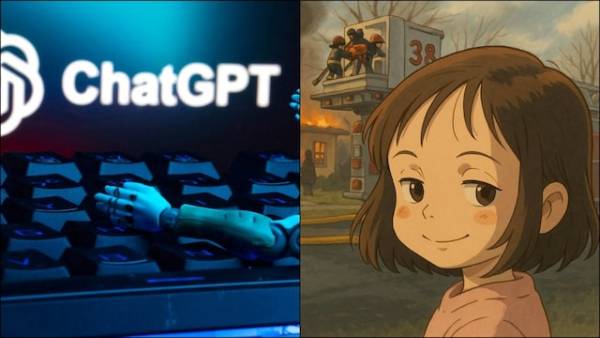
ChatGPT’s latest update has let a storm of creativity loose on the internet with its new ability to transform ordinary pictures into the unmistakable whimsy of Studio Ghibli movies. The feature, part of OpenAI’s ChatGPT-4o update, quickly went viral but also presented monumental technical challenges to the company.
Social media is full of “Ghibli-fied” portraits of celebrities, politicians, and even historical events in the distinctive style of films like “Spirited Away” and “My Neighbor Totoro.”
Even OpenAI CEO Sam Altman joined in on the fun, changing his profile picture to a Ghibli-portrait. Even the White House jumped in on the fun, posting on its official X account a stylized portrait, cementing the feature’s status in pop culture.
What is so attractive about the tool is how easy it is to use. Individuals simply upload images and apply the Ghibli filter with basic instructions, allowing anyone to create artistic reproductions without having to possess specialized skills. Ease of use has been a significant factor in its rapid uptake by various groups.
The feature’s popularity was so high that it crashed OpenAI’s servers, with Altman confessing on Twitter that “GPUs are melting” due to the pressure. The company imposed temporary limits, capping free-tier users at three image generations per day, as it grappled with the record traffic on its servers.
“We are attempting to increase the efficiency in image making,” Altman clarified. The organization was struggling to keep up with demand despite making such efforts. The technical pressure, though, was more than it could efficiently manage.
The surge in usage led to global outages of ChatGPT, with scores of users reporting that they were unable to access the chatbot. The downdetector showed that complaints hit a high of over 470 reports, primarily regarding ChatGPT functionality. Even though OpenAI fixed the problem within an hour, the outage was a sign of how important the AI tool has become to users’ daily lives and activities.
A frustrated user humorously lamented missing a deadline due to the outage, and another user complained of being “alone” without its chatbot functions. These grievances reflect how far AI assistants have integrated into work and daily life habits. Apart from the technical problems, the Ghibli-style generator also sparked controversy regarding copyright in AI-generated images.
Others think that mimicking the unique look of Studio Ghibli can be an intellectual property rights breach, particularly with copyrighted materials used to train artificial intelligence models with or without proper authorization or fair compensation for authors.
These issues are especially pertinent in light of Studio Ghibli filmmaker Hayao Miyazaki’s famous resistance to AI-generated imagery. In a recently unearthed 2016 video, Miyazaki had referred to AI animation as “an insult to life itself” due to the ethical concerns of AI’s potential to mimic human imagination and artworks that take years to master.
OpenAI has tried to counteract these problems by implementing what they term a “conservative approach” to copying style and rejecting requests that are too close to reproducing the work of existing artists. Yet, the viral nature of the Ghibli-style phenomenon has created these limits as hard to enforce consistently over millions of user requests.
In spite of the issues, OpenAI intends to make these image creation tools more widely available to developers and business users through APIs in future weeks. The step indicates faith in their capacity to responsibly scale the technology while addressing technical and ethical issues.
The trend reflects both the capacity to create remarkable pieces with current AI technology and the advanced challenges they present to creative industries. As consumers continue to experiment with creative AI products, companies like OpenAI are faced with the challenge of scaling their infrastructure to meet demand while addressing the ethical and legal challenges of AI-created works of art.
For now, the Ghibli generator is an intriguing example of how human imagination can be expressed through AI even while making technological and artistic leaps that will keep challenging our understanding of technology and art in the digital age.